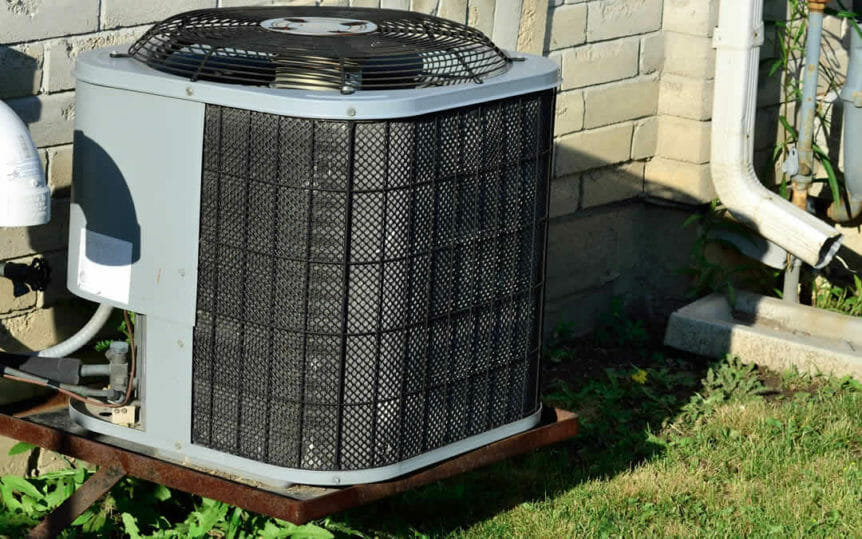
Signs That It May Be Time To Replace Your AC System
They say everything is bigger in Texas, and that is especially true when it comes to heat and humidity. Our air conditioners work hard, and it’s always best to replace your system before it breaks down, leaving you and your family sweltering in the worst of a Houston summer. But how do you know when to repair or replace? Knowing the difference between AC repair and replace can be a tricky, but that’s why we are here to help. Read on to get the scoop on what you need to look for to determine if your unit needs to be replaced, or simply needs a repair.
How old is your AC Unit
How old is your AC unit? The average lifespan of an air conditioner is 10-12 years, more on the 12-year side if the unit has been properly maintained.
“The life of an air conditioning unit depends on the service after the system is installed. If you don’t have your system serviced, meaning tuned up twice a year, then you are typically going to exhaust that system a lot quicker,” said John Moore Services Indoor Air Quality and Energy Efficiency Specialist Michael Hevgpeth. “They say in Houston if you get 10 years out of your system you are lucky, but if you have it serviced you can have more. The average person does not get theirs serviced enough so it’s not uncommon to see people replace their system every 5-7 years. It’s the most expensive unit in the house and, sadly, people neglect it.”
Higher energy bills: We know that by living in Houston our monthly bills are going to be higher in the summertime, but that doesn’t mean they should be excessively high. Having a leak in your air duct, or old rusted evaporator coils are only a few factors among many that will cause your air conditioning unit to work harder, making your monthly bills higher. If your system has not been maintained and checked bi-annually, then chances are it is not working in optimal condition and you are paying more than you should.
Your house is not cooling down like it should: If your AC system is running properly, every room in your house should be the same temperature. If you go in a bedroom and notice it is warmer than the living room, you have a problem. It could be a variety of issues such as dirty filters, a broken compressor, or leaky air ducts, all of which can be fixed. But if the issue keeps occurring or you just don’t fix it, it stresses your system and will cause it to fail prematurely.
Air conditioning unit is making strange sounds: If you notice your unit start to make strange noises that you have never heard before, chances are a fan has gone out or something else inside has broken. It’s important to listen for these sounds because the longer your unit runs in this condition, the shorter its life will be.
Water around the unit: If you notice water forming around your unit, there is something leaking on the inside such as refrigerant, or something has frozen or sprung a leak. Like everything else, if you don’t get it fixed properly, it will stress and break your air conditioning system.
“I always tell my customers that they should replace their system if they have too many repairs in general,” said John Moore Services HVAC Manager Derek Cooksey. “Whenever you have two or more costly repairs you might as well go ahead and replace it. The warmer it gets the more problems you will start to see, and if your system has been worn and had major repairs twice already, chances are it’s not in the greatest condition and will break down again pretty quickly.”
If you need to repair your AC unit frequently and decide that upgrading to a new system is the right move for you, there are several things to consider before making your purchase.
“Before we determine which system is best for the customer we do a Heat Load Calculation on the home which tells us the amount of cooling we need to maintain the desired temperature and to control the humidity in the air,” said Cooksey. “Then we recommend a system that will fit the customer’s need. I always say to get a system with a SEER rating 14 or higher because these systems are more energy efficient and you will get better savings. The higher the SEER rating, the more energy you will save.”
Along with installing a new unit, it’s important to make sure other elements of your HVAC system are in good condition. Now would be a good time to get your air ducts cleaned and to install a UV purifier to have a cleaner system all the way through, and a cleaner system means a more efficient system.
“Media filters are also important to install, especially on new systems, because they prevent dust particles from clogging up the evaporator coils and will keep your new system running smoothly,” said Cooksey. “Also make sure that you have some sort of radiant barrier installed along with the proper amount of insulation so your attic won’t get overly hot in the summer. Excess heat in the attic will stress your AC system and cause it to run harder than it should. If you have a brand new AC unit but other parts of your home are not up to code, your unit won’t be any better than it was before you replaced it.”
Whether your system is new or old, the important thing to remember is continual maintenance. If you can catch problems when they are still small, the life of your AC unit will be a lot longer. John Moore Services offers 31-point AC inspections and AC Tuneup services and will thoroughly check each part of your AC system to keep it running in great condition. Get your AC system checked today so you can stay cool all summer long!
